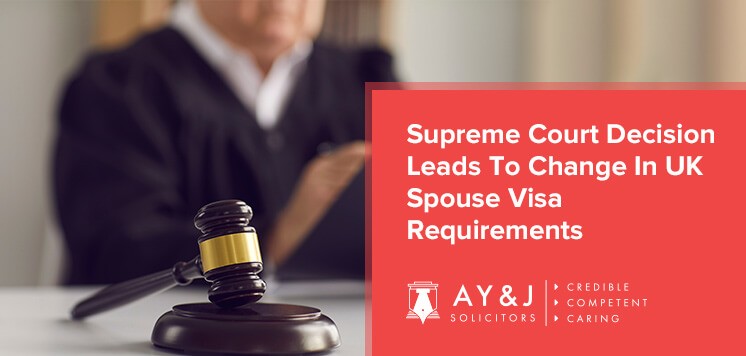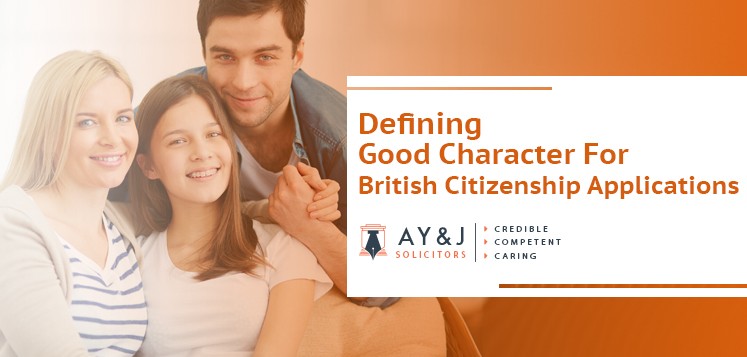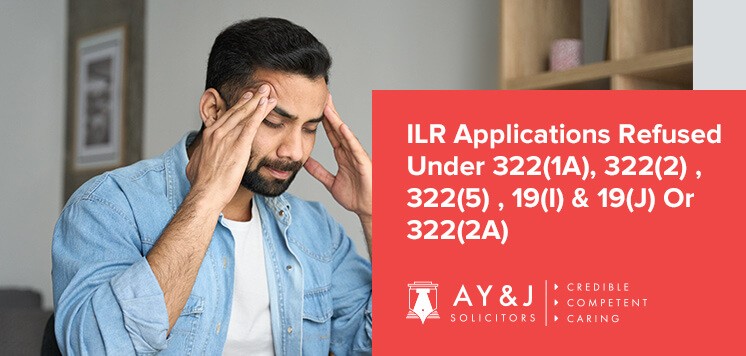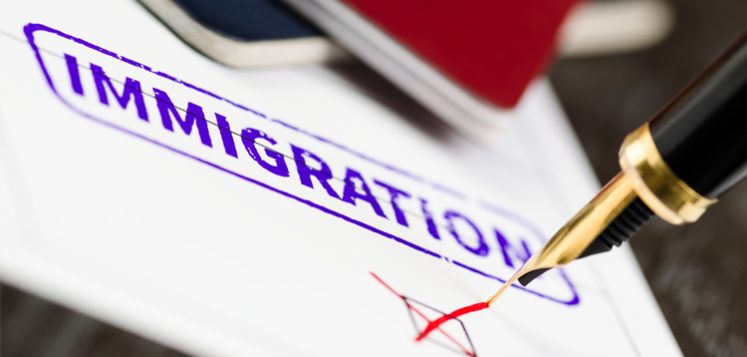Disclaimer: The information in this blog is accurate as of its publication date. Any updates after that date are not reflected here.
Could it be possible that finding your soulmate is actually easier than getting a UK spouse visa, which will enable you to live your life together? More than 33,000 people may be saying ‘yes’ to this ill-fated question, for that’s how many people have had their UK spouse visa applications refused over the past few years.
There are many reasons for this. One of the main ones is the draconian minimum-income required by the spouse settled in the UK who wishes to sponsor their non-EEA spouse to come and reside with them in the UK.
Table of Contents
What is the minimum-income threshold for a UK Spouse Visa?
Prior to July 2012, people settled in the UK who married or wherein a relationship akin to marriage with someone from outside the EEA could bring their partner into Britain if they could show they could maintain the family without recourse to public funds (benefits). However, entry clearance officers found it difficult to apply this test consistently. As a result, the Home Office commissioned the Migration Advisory Commission to come up with an alternative policy which would involve a minimum income threshold.
In July 2012, a new appendix FM was inserted into the Immigration Rules to regulate the entry requirements for non-EEA relatives who wished to come to the UK to join family members. Those wishing to bring a spouse, civil partner, fiancée or long-term partner to the UK after this date would need to have a gross annual income of at least £18,600, with an additional £3,800 for the first dependent child, and £2,400 for each additional child.
The earnings or potential earnings of the non-EEA spouse or partner were ignored. Savings could be taken into account to make up any shortfall; however, these were set at an exorbitantly high amount.
The minimum income threshold was greeted with outrage from the beginning. The Home Secretary at the time, Theresa May (now Prime Minister), was accused of creating a generation of ‘Skype kids’. One of the most galling aspects of the Home Office guidance surrounding the application of the minimum income threshold was that any ‘exceptional circumstances’ that may make a decision ‘disproportionate’, were “likely to be rare”.
And rare they were. Separation of a parent and child was not considered to be an ‘exceptional circumstance’ despite a plethora of studies which show the long-term psychological damage parental separation can cause. From 2012 to 2014 only 52 cases out of some 30,000 refused applications were referred to the Referred Casework Unit (RCU), and of those 52, only 26 succeeded.
Has the Supreme Court provided hope for those unable to meet the minimum-income threshold?
In February 2017, four appellants, who in the judgment were referred to by their initials, MM, AM, AF and SJ, challenged the minimum income threshold via judicial review on grounds that it is incompatible with the claimants’ rights under Articles 8,12 and/or 14 of the European Convention on Human Rights (ECHR), as well as being unreasonable and beyond the powers of the Home Office under common law.
In the High Court, the Honourable Mr Justice Blake held that the combination of more than one of five features of the Immigration Rules was, “so onerous in effect as to be an unjustifiable and disproportionate interference with a genuine spousal relationship.”
This was rejected by the Court of Appeal who held that while proportionality had to be assessed objectively by the judiciary, “appropriate weight” had to be given to the Secretary of State’s judgment, especially if outside expertise had been commissioned to help her make the decision.
On appeal, the Supreme Court has delivered a ruling on the following three issues:
- The principle of a minimum income requirement;
- The treatment of children in the Immigration Rules and guidance;
- The treatment of alternative sources of funding in the Immigration Rules and guidance.
The principle of a minimum income requirement
The learned judges declared that there was no doubt that the minimum income threshold caused a great deal of hardship for many families. However, this did not mean that it was incompatible with the ECHR or unlawful on common law grounds. They also stated that the work of the Migration Advisory Committee in setting the minimum income threshold was a “model of economic rationality”. Therefore, in principle, the minimum income threshold was acceptable.
The treatment of children in the Immigration Rules and guidance
Of the four cases on appeal, the only one to involve a child was AF. The Supreme Court agreed with Blake J’s following statement:
“… the proposition that denial of admission of MM’s wife interferes unduly with AF’s best interests because it leads MM to spend time in Cyprus away from his nephew and de facto child, is a challenging one to substantiate. It is not possible to do so in the context of a generic challenge to the legality of the rules as such.”
The court relied on the Jeunesse v the Netherlands (2014), decided by the European Court of Human Rights (ECHR). In this case, the applicant, a Surinamese national, entered the Netherlands in 1997 on a tourist visa and continued to reside there after her visa expired. She married a Dutch national and they had three children, all of whom were Dutch nationals. She was repeatedly denied a Residence Permit and spent four months in a detention centre, eventually being released because she was pregnant.
The Supreme Court observed that in Jeunesse, the determining factor for the ECHR was the Dutch authority’s failure to give adequate weight to the impact that removing their mother would have on the children. All the children’s lives were deeply rooted in the Netherlands; it would not be feasible for them to move to their mother’s home country. The court went on to say that the guidance did not adequately allow entry clearance officers to give weight to the best interests of the child (a statutory duty for public officials exercising their duty under section 55 of the Borders, Citizenship and Immigration Act 2009). The criteria for ‘exceptional circumstances’ in which application of the Immigration Rules would be considered disproportionate included incidents whereby the child faced a major medical procedure or abandonment; criteria so stringent that even the applicant in Jeunesse would have failed to satisfy them according to the learned judges.
They went on to say that the guidance should be amended to bring it into line with the guidelines laid down in Jeunesse, which included the length of time the applicant had resided in the country, the absence or presence of a criminal record and the practicality, feasibility and proportionality of denying her residence, and section 55 of the Borders, Citizenship and Immigration Act 2009.
The treatment of alternative sources of funding in the Immigration Rules and guidance
The court stated that the Migration Advisory Committee’s report considered the issue of accounting for “differing sources of income” and the “income of the sponsored migrant”. They considered it reasonable to consider third-party support and stated there was a strong case for taking into account the sponsored migrant’s prospective income. However, evidence supported the conclusion that these recommendations were rejected on matters of practicality and simplicity of operation, something the court declared was a perfectly acceptable course of action to take.
However, the court concluded that the guidance needed to be reviewed to take into account entry clearance officers’ duties under the Human Rights Act, and suggested that the Secretary of State “might wish to consider” revising the Immigration Rules so they take into account circumstances in which alternative sources of funding can be considered.
In July 2017, the Home Office changed the minimum-income requirement policy to reflect the changes suggested by the Supreme Court.
How can we help?
At A Y & J Solicitors, we’re passionate about reuniting families and finding solutions to allow foreign-born spouses to join their partners in the UK. For expert immigration law assistance with your UK spouse visa application, and for all your UK immigration law needs, please contact us on +44 20 7404 7933 or at contact@ayjsolicitors.com today. We can provide expert advice regarding the changes to the minimum-income threshold requirement
Disclaimer: No material/information provided on this website should be construed as legal advice. Readers should seek an appropriate professional advice for their immigration matters.










